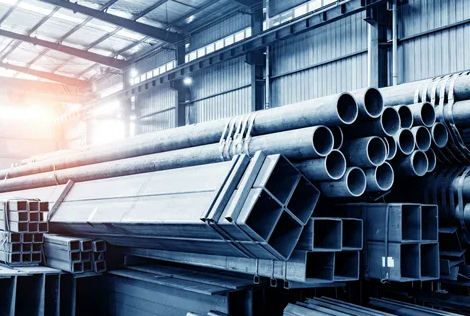China has taken steps to cool down its hot steel sector by discouraging exports and increasing imports of certain raw materials, steps seen as measures to stabilize record prices.
But, there are also some long-term implications as Beijing seeks ways to reduce the world's largest steel producer's dependence on Australian iron ore.
Australia is the world's largest exporter of steel ingredients and meets roughly two-thirds of China's import needs, which is likely to be inconvenient for Beijing given the ongoing political and trade tensions with Canberra.
On April 28, China's finance ministry announced that it would remove export tax exemptions on 146 steel products effective May 1, while lifting import duties on certain commodities, including cast iron, crude steel, recycled steel and ferrochromium.
According to Tang Chuanlin, an analyst at CITIC Securities, the end of the export duty exemption could affect steel exports of about 33.35 million tonnes per year.
This is important as China exported 53.67 million tonnes of steel products in 2020 and shipped 17.68 million tonnes in the first quarter of this year, up 23.8% from the same period a year earlier.
If the abolition of export discounts renders Chinese steel products uncompetitive in regional markets, this could lead to reduced production at the mills, as they will be reluctant to increase domestic supply and thus reduce prices and profitability.
At the same time, when the authorities began to restrict exports, they reduced the cost of imports of some types of steel raw materials, which can replace iron ore.
While pig iron, recycled steel scrap and scrap steel are not direct replacements for iron ore, they can be used to make steel in electric arc furnaces.
This means that more steel can be produced from raw materials other than iron ore, with the added benefit of less environmental pollution, given that electric arc furnaces do not use coking coal as an energy source.
Overall, the authorities appear to be trying to address the problems of high domestic steel prices, high imported iron ore prices, and pollution levels from steel production in one fell swoop.
Subscribe to news 
Metallurgy news
- 19 December 2025
19:00 U.S. steel mill shipments fell 4.2 percent in October 2025 18:00 Pakistan's scrap imports in November 2025 fell by 16.8% compared to October 17:00 The Ministry of Resources completely switches the operation of the port of Ashburton to natural gas 17:00 Consumer confidence in Turkey decreased by 1.8 percent in December 2025 compared to November 16:00 Taiwan launches AD on NOES from South Korea and China 16:00 Turkish President Tosyali maintains his goals for 2025, despite difficult global conditions 15:00 Severstal: demand for steel in the Russian construction sector will fall by 10 percent by the end of 2025 15:00 JFE Steel is developing a 130 mm thick steel plate for offshore wind power facilities
Publications
21.12 Shelving racks from Fortis Stroy 19.12 Materials for construction and repair of life: current solutions 15.12 Ägyptens Schätze: Die Magie von Kairo und Hurghada Entdecken 15.12 Best entertainment for children in Almaty: Top 5 places to go 13.12 Secure storage in a class A+ warehouse






